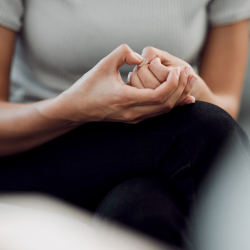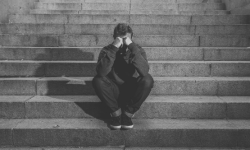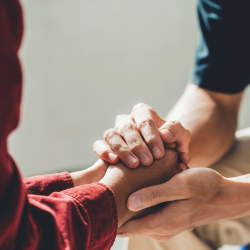20+ Years Experience
Specialist Addiction Treatment

Drug addiction rehab can be a life-altering journey, guiding individuals towards a path of long-lasting recovery.
With various treatment approaches and rehab programs available, it can be challenging to navigate through the sea of information.
In this comprehensive guide, we will explore the complexities of drug addiction, delve into various treatment options, and provide valuable insights to help you or your loved ones overcome addiction and regain control over life.
Drug addiction is a complex condition that affects millions of people worldwide. It is characterised by an uncontrollable compulsion to consume drugs, leading to physical and psychological dependence.
Symptoms of drug addiction vary among individuals, but common signs include changes in behaviour, increased tolerance, and withdrawal symptoms.
Genetic predisposition, environmental factors, and mental health issues are some of the primary causes of drug addiction.
The consequences of drug addiction can be devastating for both individuals and their families, resulting in financial hardships, legal troubles, and strained relationships.
Treatment options for drug addiction include detoxification, therapy, aftercare, and mutual support groups at a drug rehab centre.
By understanding the nature of drug addiction, its underlying causes, and the available treatment options, we can develop a comprehensive approach to help individuals overcome addiction and regain control over their lives.
While cocaine, heroin, and prescription drugs are among the most prevalent drug and alcohol addictions, there are also lesser-known addictions affecting individuals worldwide.
The primary forms of drug rehab treatment at a rehab centre are inpatient and outpatient. Drug addiction can be associated with a range of risks, including co-occurring mental health issues, physical and psychological symptoms, and long-term effects.
Resources available for addiction treatment include:
By exploring various types of drug addictions and understanding the risks associated with each, individuals can make informed decisions regarding the most appropriate treatment options for their specific needs.
There are two main options for drug rehabilitation programmes: inpatient and outpatient. Inpatient drug rehab offers a secure and regulated environment, 24-hour medical attention, and access to alternative treatments, but it can be costly and isolating.
On the other hand, outpatient drug rehab is more cost-effective and allows individuals to remain in their residences during evenings and overnight, but it is less intensive and may not be suitable for those with severe addictions.
Personal considerations such as the severity of the addiction, the individual’s support system, and financial and personal circumstances, should be taken into account before deciding which type of rehabilitation programme is most suitable.
Inpatient drug rehab involves residing in a structured, regulated environment and receiving intensive detoxification and therapy treatment.
This type of treatment plan is typically recommended for individuals with severe addiction problems, a history of relapse, or co-occurring mental health issues.
In residential drug rehabilitation, various established therapeutic techniques are available, such as cognitive behavioural therapy (CBT), dialectical behaviour therapy (DBT), transactional analysis (TA), and mindfulness.
While it is recommended to commit to a minimum of 10 days for residential treatment, the suggested duration for all types of addiction in residential drug rehab is 28 days.
For heroin withdrawal and recovery at a rehabilitation centre, the suggested duration of rehab stay is typically between 7 and 10 days. Residential treatment in London can range from two to twelve weeks.
One key benefit of residential treatment is the opportunity for individuals to separate themselves from their substance-using environment, thereby reducing the influence of negative factors.
Outpatient drug rehab enables individuals to remain in their home environment while participating in therapy sessions on an outpatient basis, providing a more flexible approach to recovery. This type of treatment allows individuals to undergo treatment in:
Outpatient clinics offer a more adaptable approach to treatment, enabling individuals to attend therapy sessions while continuing their daily routines.
The distinction between outpatient treatment and residential rehab in London lies in the intensity of the treatment provided.
Outpatient treatment offers similar forms of therapy and counselling as residential rehab, but is usually less intensive, making it more suitable for individuals with less severe addictions or stronger support systems.
Medically assisted detox is a crucial aspect of drug addiction treatment, as it helps individuals safely eliminate toxic substances from their bodies in a controlled environment with 24-hour care.
The detoxification process assists with managing withdrawal symptoms, ensuring a safe and comfortable start to the recovery process.
The initial method of treatment in a drug rehabilitation programme is the drug detoxification process, which is essential to control withdrawal symptoms and ensure a secure commencement of the rehabilitation procedure.
Medically assisted detox plays a vital role in the recovery process, as it helps individuals manage the physical and psychological symptoms of addiction while preparing them for the next phase of their treatment.
Various therapies and effective treatments are utilised in drug addiction treatment, including drug treatment methods such as:
These therapies aim to address the root causes of addiction and provide individuals with the tools and strategies necessary to maintain long-term recovery.
Therapies can help individuals develop healthier coping skills, build self-esteem, and more.
Cognitive behaviour therapy (CBT) is a form of psychotherapy that assists individuals in recognising and altering their negative thought patterns and behaviours associated with addiction.
CBT (Cognitive Behavior Therapy) is a well-researched method that can be used to effectively address mental health issues. It also helps in tackling harmful addictive behaviours like compulsive gambling, drug and alcohol abuse and addiction.
CBT assists individuals in recognising and altering detrimental thought patterns and behaviours associated with addiction by instructing them to identify and dispute negative thoughts and replace them with more positive and realistic ones.
Additionally, CBT facilitates individuals in developing healthier coping strategies and behaviours, ultimately contributing to their long-term recovery.
Dialectical behaviour therapy (DBT) is a form of psychotherapy that emphasises the enhancement of emotional regulation and interpersonal abilities, typically utilised for those with concurrent mental health issues.
DBT is employed to assist individuals with drug addiction in recognising and controlling their emotions, cultivating more beneficial coping skills, and strengthening their relationships with others.
The advantages of employing DBT in the treatment of drug addiction include the enhancement of emotional regulation, the acquisition of improved interpersonal skills, and an increase in self-awareness.
However, the challenges associated with the implementation of DBT for drug addiction treatment include the requirement for a highly qualified therapist, the necessity for a sustained commitment, and the possibility of relapse.
Group therapy is a form of therapy that involves group sessions with multiple individuals and a mental health professional or senior member of the group facilitating the session. It provides a secure and reassuring setting for individuals to:
Group therapy can be a valuable tool for personal growth and development.
During group therapy sessions, individuals meet regularly with a mental health professional or experienced member of the group to discuss topics relating to drug addiction and recovery.
The therapist offers guidance and support, helping participants develop effective coping strategies and maintain long-term recovery.
Selecting the right drug rehab clinic is crucial for ensuring a successful recovery. Factors to consider when choosing a clinic include the type of treatment approach offered, the support services available, and the location of the clinic.
Treatment approaches available at drug rehab clinics include Cognitive-Behavioral Therapy (CBT), Dialectical Behavioral Therapy (DBT), and Group Therapy. Support services provided by drug rehab clinics consist of individual counselling, family counselling, professional help, and aftercare services.
When assessing the location of a drug rehab clinic, factors such as the proximity to family and friends, the availability of transportation, and the safety of the area should be taken into consideration.
By carefully evaluating these factors and taking into account personal preferences and circumstances, individuals can make an informed decision about which drug rehab clinic is the best fit for their needs and recovery goals.
The cost of treatment for private drug rehab, including prescription drug addiction, typically begins at £4000, which is an important factor to consider when discussing drug rehab costs.
Private rehab is usually funded by the patient or family members, but certain private insurance policies may provide coverage for some or all of the cost of rehab treatment.
The type of drug addiction recovery centre and the length of treatment are two broad categories of factors that influence the cost of drug rehabilitation in the United Kingdom.
While the cost of drug rehab may seem daunting, it is essential to consider the potential benefits of investing in treatment.
By receiving comprehensive care and support from experienced professionals, individuals have a greater chance of achieving long-term recovery and regaining control over their lives.
In some cases, free aftercare services, such as those provided by the Social Interest Group in London, can help ease the financial burden of recovery.
Family support and involvement are critical for a successful recovery from drug addiction. Family members can provide emotional support, and practical assistance, and help create a constructive atmosphere for recovery.
Family therapy involves incorporating family members into therapy sessions in order to restore relationships and provide assistance to the individual with addiction.
This can help individuals objectively evaluate their relationships and determine which ones are harmful, as well as how to address those issues.
The CRAFT method (Community Reinforcement and Family Training) relies on employing positive reinforcement for desirable behaviours, such as abstaining from drug or alcohol use for a period of time.
Co-dependency in addiction refers to relationships that are not conducive to one’s well-being that individuals in addiction may establish as a means of coping, frequently with another individual in addiction.
By recognising the importance of family support and addressing co-dependency issues, individuals can foster a healthier environment for recovery.
Aftercare and relapse prevention strategies are of great importance in sustaining long-term recovery and diminishing the chance of reverting to substance use.
Aftercare assists individuals in averting relapse during their initial year in the process of recovery provide treatment. It has been estimated that the relapse rate for individuals who have completed a rehabilitation program is 40-60%, highlighting the need for continued support and treatment following the completion of a rehab program.
The role of support programs, such as Alcoholics Anonymous and Narcotics Anonymous, in recovery cannot be underestimated.
These groups offer support and a sense of community to those undergoing the recovery process of cannabis addiction. The UKAT Alumni program is a support program designed to provide assistance to individuals who have successfully completed rehabilitation at UKAT.
A relapse prevention plan guides individuals on how to optimise the likelihood of maintaining recovery after departing from the clinic.
Effective recovery from cocaine addiction involves a combination of detoxification, clinical treatment, medication, and behavioural therapies such as individual therapy, group, or family therapy.
Medication can also be used to help manage withdrawal symptoms, prevent relapse, or treat any co-occurring mental health conditions.
Addiction hijacks the pleasure and reward circuits in the brain, leading to an uncontrollable craving for more. It also heightens the body’s stress response, causing feelings of anxiety when not using the substance.
Inpatient drug rehab provides a supervised, secure setting and access to 24-hour medical care, while outpatient drug rehab is more cost-effective and allows individuals to stay in their homes outside of treatment hours.
Family support and involvement can be instrumental in aiding recovery by providing emotional support, and practical assistance, and creating a supportive and safe environment throughout.
This type of support can be invaluable in helping individuals cope with the challenges of recovery and stay on track with their treatment plans. It can also help reduce the risk of relapse.
Holistic drug addiction treatment often employs art, music, equine, reiki, tai chi, yoga, gardening and meditation therapies to help individuals recover.
These therapies are used to help individuals gain insight into their addiction, develop coping skills, and build a strong support system. They also help individuals reconnect with their inner selves and find a sense of purpose and meaning in life.
In conclusion, drug addiction rehab is a multifaceted process that requires dedication, support, and the right treatment options.
By understanding the nature of drug addiction, exploring various treatment approaches, and considering the importance of family support, aftercare, and relapse prevention strategies, individuals can embark on a journey towards long-lasting recovery and fulfilling life free from addiction.
The recovery journey itself may be challenging, but with the right tools and guidance, overcoming addiction is possible.
There are a range of other services that we can provide. Have a look at the list below for more information:




























We Aim To Reply To All Enquiries With-in 24-Hours